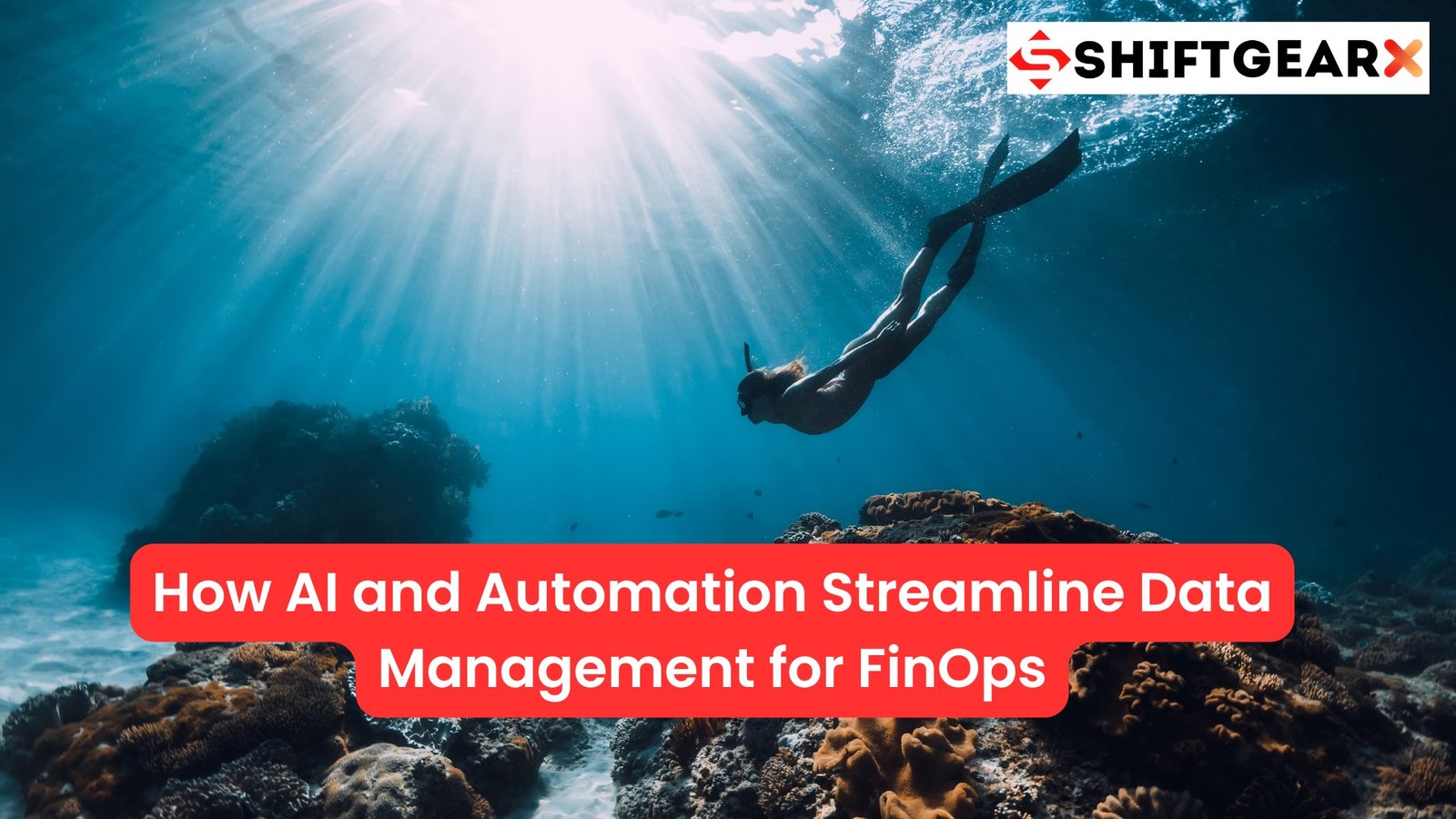Artificial Intelligence (AI) today is all about technological innovation, poised to revolutionize every aspect of our lives in the coming decades. The AI impact is broad and significant, touching nearly every major sector and transforming industries such as healthcare, finance, and manufacturing.
As we look towards the future of AI, it’s crucial to understand its potential impact, challenges, and the transformative power it holds for society, industry, and individuals alike. It’s not just about AI tools (as every Tom, Dick and Harry advertises for them today), it goes beyond. Let’s explore how.
The Current State of AI
Before delving into the future of artificial intelligence, it’s essential to grasp where modern AI stands today and its pervasive impact across various industries. Recent years have seen remarkable advancements in machine learning algorithms, enabling computers to perform tasks that once seemed the exclusive domain of human intelligence.
Neural networks have played a critical role in the development of these algorithms, mimicking human brain function and laying the groundwork for modern artificial intelligence technologies. Natural language processing has made significant strides, allowing Systems to understand and generate human-like text with increasing accuracy.

This breakthrough has led to the development of more sophisticated virtual assistants and chatbots, capable of engaging in nuanced conversations and providing personalized support across various industries. Computer vision systems have also seen dramatic improvements, with AI now able to recognize objects, faces, and even emotions with remarkable precision.
This technology has found applications in areas ranging from security and surveillance to medical imaging and autonomous vehicles. However, it’s important to note that current artificial intelligence systems still have limitations. While they excel at narrow, specific tasks, they lack the general intelligence and adaptability characteristic of human cognition.
Most AI today relies heavily on supervised learning, requiring large amounts of labeled data to function effectively. Despite these constraints, the rapid pace of AI development suggests that we’re on the cusp of even more groundbreaking advancements.
AI’s Expanding Role in the Future
As AI technology continues to evolve, its applications will become increasingly sophisticated and widespread. Let’s explore some key areas where AI is set to make a significant impact in the future:

Healthcare
The future of healthcare industry is intrinsically linked with artificial intelligence advancements. Here are some ways AI will revolutionize medical care:
-
Diagnosis: AI-powered systems, with the help of machine learning, will analyze medical images, lab results, and patient data with unprecedented speed and accuracy, assisting doctors in making more precise diagnoses. AI tools will enhance data-driven insights, improving diagnostic accuracy and enabling more effective treatments.
-
Drug discovery: Machine learning algorithms will accelerate the process of identifying and developing new medications, by training data and potentially reducing the time and cost of bringing life-saving drugs to market.
-
Personalized treatment: AI will help tailor treatment plans to individual patients based on their genetic makeup, medical history, and lifestyle factors, ushering in an era of truly personalized medicine.
-
Predictive healthcare: By analyzing vast amounts of data, Systems will predict disease outbreaks and identify at-risk individuals, enabling proactive interventions and preventive care.
-
Robotic surgery: AI-guided robotic systems will enhance surgical precision, potentially reducing complications and improving patient outcomes.
While these advancements promise to improve healthcare outcomes and accessibility, they also raise important questions about data privacy, the role of human medical professionals, and equitable access to AI-enhanced medical care.

Education
AI is set to transform the educational landscape, offering new ways of learning and teaching:
-
Personalized learning: AI tutors, with the help of generative AI, will adapt to each student’s learning style, pace, and preferences, providing customized instruction and feedback to optimize the learning experience. Enrolling in AI programs can significantly advance one’s career in the field of artificial intelligence. This will help our new age human workers, use tools, process and technology to find jobs, and be the new age employees who have AI knowledge.
-
Intelligent content creation: AI will generate educational materials tailored to specific curricula and student needs, ensuring that learning resources are always up-to-date and relevant.
-
Administrative tasks: By automating grading, scheduling, and other time-consuming administrative duties, AI will allow teachers to focus more on instruction and student interaction.
-
Accessibility: AI-powered tools will make education more accessible to students with disabilities or those in remote areas, breaking down barriers to learning.
-
Skill gap analysis: Systems will identify skill gaps in the job market and help educational institutions adapt their curricula to meet evolving workforce needs. The role of computer science is crucial in this adaptation, as it helps shape the development of AI and robotics.
While AI has the potential to enhance education significantly, it’s crucial to maintain the human element in teaching and ensure that technology complements rather than replaces human instructors.

Transportation
The future of transportation will be heavily influenced by AI:
-
Autonomous vehicles: Self-driving cars, trucks, and public transportation will become increasingly common, potentially reducing accidents, traffic congestion, and emissions.
-
Traffic management: Generative AI will optimize traffic flow in cities, reducing commute times and improving overall urban mobility.
-
Logistics and supply chain: AI will streamline supply chains and delivery systems of all organizations in any industry, making them more efficient, cost-effective, and responsive to real-time demand.
-
Predictive maintenance: AI algorithms will anticipate vehicle maintenance needs, reducing breakdowns and extending vehicle lifespans.
-
Air traffic control: AI-assisted systems will enhance air traffic management, improving safety and efficiency in increasingly crowded skies.
As AI takes on a larger role in transportation, addressing safety concerns, developing appropriate regulations, and managing the transition from human-operated to autonomous systems will be crucial challenges to overcome.

Manufacturing and Industry
AI will drive significant changes in manufacturing and industrial processes:
-
Smart factories: Generative AI-powered robots and systems will optimize production lines, increasing efficiency, reducing waste, and improving product quality. These systems can handle repetitive tasks, freeing up human workers for more complex and creative roles.
-
Quality control: Computer vision and machine learning will enhance quality assurance processes, identifying defects with greater accuracy and consistency than human inspectors.
-
Supply chain optimization: AI will predict demand, manage inventory, and streamline logistics to reduce costs and improve efficiency across global supply chains.
-
Predictive maintenance: Systems will monitor equipment and predict when maintenance is needed, reducing downtime and extending machinery lifespans.
-
Energy management: AI will optimize energy consumption in industrial settings, contributing to sustainability efforts and cost reduction.
While these advancements promise increased productivity and efficiency, they may also lead to job displacement in certain sectors, necessitating workforce retraining and adaptation.

Finance and Banking
AI will continue to transform the financial and business industry sector in the following ways:
-
Fraud detection: Machine learning algorithms will become even more adept at identifying suspicious transactions and preventing financial crimes in real-time. The role of data science in analyzing transaction patterns is crucial for detecting anomalies and enhancing fraud prevention.
-
Algorithmic trading: Generative AI-powered systems will make increasingly sophisticated investment decisions based on vast amounts of market data, potentially outperforming human traders.
-
Personalized financial advice: Generative AI chatbots and virtual assistants will provide tailored financial guidance to individuals in any industry based on their unique circumstances, democratizing access to financial planning services. Large language models, like ChatGPT, can analyze vast amounts of financial data to offer personalized advice.
-
Risk assessment: AI will improve credit scoring and risk analysis, potentially making loans more accessible to underserved populations while maintaining financial stability.
-
Regulatory compliance: Systems will help financial institutions navigate complex regulatory environments, ensuring compliance and reducing the risk of costly violations.
As Generative AI takes on a larger role in financial decision-making, ensuring transparency, fairness, and accountability in these systems will be crucial to maintain public trust and prevent systemic risks.

Generative AI in Entertainment and Media
AI will reshape how we consume and create entertainment:
-
Personalized content recommendations: AI algorithms will become even more sophisticated at suggesting movies, music, and other content tailored to individual preferences, enhancing user engagement and satisfaction.
-
Industry Based AI-generated content: Machine learning models will create music, art, and even movies, potentially transforming the creative industries and blurring the lines between human and AI-created content. Generative AI, in particular, will produce original content based on learned data patterns, impacting sectors like journalism, healthcare, and automation, and raising ethical and data privacy concerns.
-
Virtual and augmented reality: Generative AI will enhance VR and AR experiences, making them more immersive, interactive, and responsive to user behavior, with the new emerging technologies.
-
Language translation: Real-time Generative AI translation will break down language barriers in global entertainment and media consumption, fostering greater cultural exchange.
-
Content moderation: AI systems will improve the detection and removal of inappropriate or harmful content on social media and other platforms, although this raises questions about censorship and free speech.
While these advancements offer exciting possibilities, they also raise questions about the future of human creativity, copyright issues, and the potential for AI to influence cultural trends and public opinion.

Artificial Intelligence Challenges and Ethical Considerations
As AI becomes more prevalent in our lives, several challenges and ethical considerations must be addressed:
Bias and fairness are significant concerns. Systems can inadvertently perpetuate existing biases present in the data they are trained on, leading to unfair outcomes. The importance of responsible AI in ensuring ethical guidelines and addressing biases cannot be overstated, especially with increasing pressure on the U.S. government to establish clearer ethical guidelines for artificial intelligence.
Recent developments, including lawsuits surrounding generative AI, have prompted considerations of data privacy and civil liberties, signaling a potential shift towards stricter regulations.
Privacy and Data Security
AI systems rely on vast amounts of data to function effectively. As more personal information is collected and analyzed, protecting individual privacy becomes increasingly important. Future systems must be designed with robust security measures to prevent data breaches and unauthorized access. Striking a balance between data utilization for AI advancement and individual privacy rights will be a ongoing challenge.
Machine Learning Bias and Fairness
AI systems can inadvertently perpetuate or amplify existing biases present in their training data. Ensuring that AI algorithms are fair and unbiased across different demographics will be crucial as these systems take on more decision-making roles in society. This includes addressing issues of racial, gender, and socioeconomic bias in AI applications ranging from hiring processes to criminal justice systems.
Job Displacement
As AI automates more tasks, certain jobs may become obsolete. While new jobs will likely emerge in AI-related fields, there may be significant disruption and job losses in the labor market. Preparing for this shift through education and retraining programs will be essential to ensure a smooth transition and prevent widespread unemployment. Governments, businesses, and educational institutions must collaborate to address this challenge proactively.
Accountability and Transparency
As Generative Artificial Intelligence systems become more complex, understanding how they arrive at decisions becomes more challenging. Developing methods to explain AI decision-making processes and establishing clear lines of accountability will be crucial, especially in high-stakes areas like healthcare and criminal justice. The concept of “explainable AI” will be central to building trust in systems and ensuring they can be effectively audited and regulated.
AI Safety and Control
As systems become more advanced, ensuring they remain under human control and align with human values becomes increasingly important. Developing robust safety measures and ethical guidelines for AI development will be crucial to prevent unintended consequences. This includes addressing concerns about Systems potentially becoming too powerful or acting in ways that are harmful to humanity.
Economic Inequality
The benefits of AI may not be distributed equally across society. There’s a risk that AI could exacerbate existing economic inequalities by concentrating wealth and power in the hands of those who control AI technologies. Developing policies to ensure that the benefits of AI are shared widely will be crucial for maintaining social stability and promoting inclusive economic growth in the labor market.

The Future of AI Research
Looking ahead, several key areas of AI research are likely to shape the future of the field:
Artificial General Intelligence (AGI) remains a significant goal for many researchers. AGI aims to create machines that possess the ability to understand, learn, and apply knowledge across a wide range of tasks, much like a human. A massive leap forward!
The historical significance of deep learning, pioneered by researchers like Terrence Sejnowski and Geoffrey Hinton, has been pivotal in advancing AI capabilities. Their work shifted the focus from traditional logic-based AI to data-driven models that emulate the human brain, showcasing its transformative impact on technology and applications today.
Artificial General Intelligence (AGI)
While current systems excel at specific tasks, the holy grail of AI research is developing systems with human-like general intelligence. AGI would be capable of reasoning, problem-solving, and adapting to new situations across a wide range of domains.
While true AGI remains a distant goal, progress in this area could lead to significant breakthroughs in AI capabilities and potentially reshape our understanding of intelligence itself.
Explainable AI
As systems take on more critical roles in decision-making, the ability to understand and interpret their reasoning becomes increasingly important. Research into explainable AI aims to develop methods for making AI decision-making processes more transparent and understandable to humans. This is crucial for building trust in systems and ensuring they can be effectively audited and regulated.

Quantum AI and Neural Networks
The intersection of quantum computing and AI holds enormous potential. Quantum computers, through appropriate data collection, could potentially solve certain types of problems exponentially faster than classical computers, potentially leading to significant advancements in AI capabilities. This could revolutionize areas such as drug discovery, financial modeling, and complex optimization problems.
Brain-Computer Interfaces
Research into direct interfaces between the human brain and Systems could lead to revolutionary applications in areas like prosthetics, communication, and cognitive enhancement. Scientific research plays a crucial role in advancing this field, particularly through the analysis of vast datasets and the acceleration of experimental workflows.
Technological advances, especially in AI and automation for the customer facing roles, are enabling these developments by providing the necessary tools and frameworks. While still in its early stages, this field holds the promise of seamlessly integrating human and artificial intelligence and enhance the global economy.
Ethical AI
As AI becomes more prevalent, developing systems that align with human values and ethical principles becomes increasingly important. Research into ethical AI aims to create frameworks and methodologies for designing systems that behave in ways that are beneficial to humanity and the labor market. This includes addressing issues of fairness, transparency, and accountability in AI decision-making.
Preparing for an AI-Driven Future
As AI continues to see exponential growth, individuals, businesses, the labor market and societies must adapt to thrive in an AI-driven world. AI is actually creating thinking machines. Here are some key steps to prepare for what’s coming:

AI Tools in Education and Skill Development
-
Emphasize STEM education: Encourage the study of science, technology, engineering, and mathematics to build a workforce capable of developing and working alongside systems.
-
Focus on uniquely human skills: Cultivate skills that are difficult for new technology Generative AI to replicate, such as creativity, emotional intelligence, and complex problem-solving.
-
Promote lifelong learning: Encourage continuous education and skill development to adapt to rapidly changing technology landscapes.
-
Develop AI literacy: Incorporate basic AI concepts into general education by creating a broad understanding of AI’s capabilities and limitations.
Policy and Regulation
-
Develop AI governance frameworks: Create guidelines and regulations to ensure the responsible development and deployment of AI technologies.
-
Address data privacy concerns: Implement robust data protection laws to safeguard individual privacy in an increasingly data-driven world.
-
Promote international cooperation: Foster global collaboration on AI research and development to ensure its benefits are shared widely and potential risks are mitigated collectively.
-
Establish ethical guidelines: Develop and enforce ethical standards for AI development and deployment to ensure systems align with human values and societal norms.
Business Adaptation
-
Invest in AI integration: Businesses should explore ways to incorporate AI into their operations to improve efficiency and competitiveness.
-
Reskill workforce: Provide training and development opportunities to help employees adapt to AI-driven changes in their industries.
-
Prioritize ethical AI practices: Develop and adhere to ethical guidelines for AI development and deployment within organizations.
-
Foster innovation: Create environments that encourage experimentation with AI technologies while maintaining a focus on human-centric design.

Social and Cultural Considerations
-
Foster public understanding: Educate the general public about AI to dispel myths and promote informed discussions about its impact on society.
-
Address inequality: Develop strategies to ensure that the benefits of AI are distributed equitably across society, preventing the exacerbation of existing social and economic divides.
-
Preserve human values: Ensure that the development and deployment of AI align with fundamental human rights and values, maintaining human agency and dignity in an increasingly automated world.
-
Encourage interdisciplinary dialogue: Promote conversations between technologists, ethicists, policymakers, and the public to address the multifaceted implications of AI advancement.
Conclusion: Embracing the AI Future
As we stand on the brink of an AI-driven future, it’s crucial to approach this technological revolution with both optimism and caution. The potential benefits of AI are vast, from revolutionizing healthcare and education to solving complex global problems like climate change. AI could help us make more informed decisions, automate tedious tasks, and unlock new realms of scientific discovery.
However, realizing these benefits while mitigating potential risks will require careful planning, ethical considerations, and global cooperation. We must remain vigilant about issues such as privacy, bias, job displacement, and the potential misuse of AI technologies.
By fostering a thoughtful and inclusive approach to AI advancement, we can work towards a future where AI enhances human capabilities and improves quality of life for people around the world. The future of AI is not predetermined. It will be shaped by the choices we make today in research, development, policy, and education.
As individuals, businesses, and societies, we must remain engaged in the ongoing dialogue about AI’s role in our near future. By staying informed, adaptable, and proactive, we can help shape an AI-driven future that aligns with our collective values and aspirations.
Commit to Using AI for the Betterment of Humanity
As we embrace this AI future, let us do so with a commitment to harnessing its power for the betterment of humanity. The AI revolution is not just about technological advancement; it’s about shaping a future that reflects our highest aspirations as a species.
By working together to address challenges and seize opportunities, we can create a future where AI and human intelligence coexist and complement each other, driving progress and improving lives across the globe.
In this journey towards an AI-driven future, continuous learning, ethical considerations, and human-centric design must remain at the forefront. As AI becomes an increasingly integral part of our world, it’s up to us to ensure that it serves as a tool for empowerment, innovation, and positive change.
The future of AI is bright, and by approaching it with wisdom, foresight, and a commitment to our shared values, we can create a tomorrow that surpasses our boldest dreams of today.
Subscribe for more updates on technology related topics like AI, ERP, Data Science etc.
Also Read: Top 10 Warehouse Management Systems You Can’t Miss – Tech News Before It’s News | Shift GearX
You will also need: Top 10 Warehouse Management Software for SMBs in 2024! – Tech News Before It’s News | Shift GearX
Subscribe to Shift GearX for more information. Learn for free!











